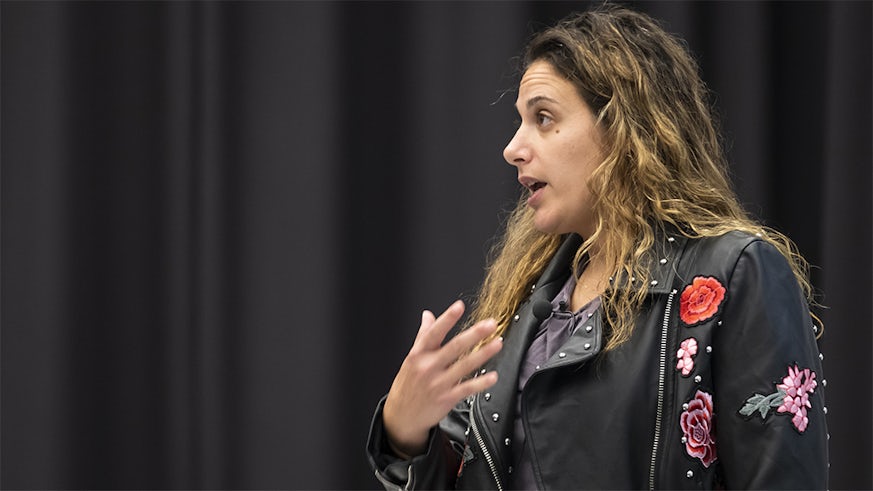Tackling representation in journalism studies
18 Medi 2019

A call to improve the editorial board diversity of leading Journalism Studies’ journals has resulted in four leading academics resigning their editorial positions.
Professor Nikki Usher from the University of Illinois opened the seventh Future of Journalism conference hosted by the School of Journalism, Media and Culture with her keynote, “#JStudiesSoWhite – A Reckoning for the Future”.
The keynote, which opened the two-day research conference, put forward a compelling case for the editorial boards of Journalism journals to tackle the issue of representation where 78% of members from the top five journals are white.
Professor Usher’s frank message highlighted the majority of journalism academics are based in Europe and the US, and that only 40% of board members are women.
To address this imbalance, Professor Usher proposed that senior white male academics on the board of more than two journals consider resigning and recommend as their replacement someone that was either non-white, female and or from the global south.
The proposal was greeted with applause from the two hundred international delegates in the audience and prompted several to announce on social media their intention to heed Professor Usher’s call and resign from one or more their editorial positions.
Professors Chris Anderson (University of Leeds), Seth C. Lewis (University of Oregon), Alfred Hermida (The University of British Columbia) and Mark Deuze (University of Amsterdam) stated their intention to resign and put forward colleagues to take their positions.
Nikki Usher's message to the Future of Journalism conference
Professor Hermida, who wasn’t at the conference but instead followed the hashtag #FoJ2019, said “I have heeded your call, stepped off two editorial boards and recommended stellar women/minority scholars”.
Professor Deuze also said, “I am hoping the editors will pay serious attention to the replacements that people who resigned suggested. It's not just about leaving journals but opening up space for others.”
Conference Chair Dr Mike Berry concluded, “It is a privilege to host this important and impactful conference every two years. As the conference’s title suggests, we use this opportunity to look to future and Professor Usher’s talk was exactly the type of progressive self-analysis we need to ensure the field of Journalism Studies remains representative of the very subjects and people we research.”
Rhannu’r stori hon
Am ragor o wybodaeth am ein hymchwil, cyrsiau ac aelodau staff, ewch i wefan yr Ysgol.


